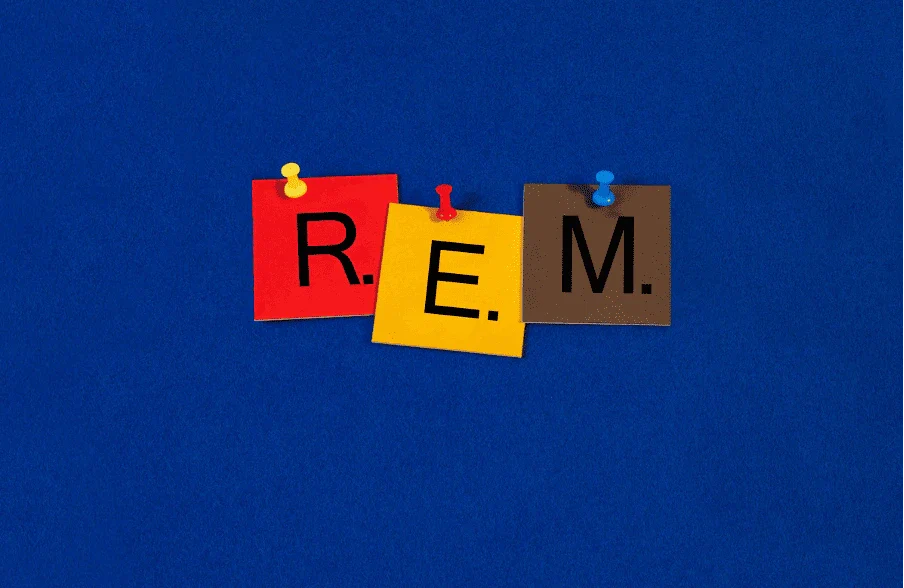Your Cart is Empty
TIPS



REM Sleep: The Stage Your Brain Can’t Afford to Miss
BY Dositive
Sep 10, 2025
Ever had one of those mornings where you technically got 8 hours of sleep… but still felt like your brain was filled with wet cement?
That’s not just “getting older” or “not being a morning person.”
It’s a sign you may not be getting enough REM sleep — the deep, brain-restoring stage your body relies on for memory, mood, focus, and even long-term brain health.

1. What is REM sleep?
REM stands for Rapid Eye Movement. It's the stage when your brain is almost as active as when you’re awake, but your body is in full-on relaxation mode! This is when:
- Your brain consolidates memories (turning today’s chaos into tomorrow’s “I remember that”)
- Emotional processing happens (helping you handle stress better)
- Toxins and waste are flushed out via the brain’s “glymphatic system”
Think of REM sleep as your brain’s nightly cleaning crew, repair shop, and filing cabinet — all rolled into one.

2. The Shocking Drop in REM with Age
Here’s the part nobody tells you: by age 50+, most people only get 1–2 hours of REM per night instead of the 8–9 hours they had as kids.
That’s not just a little dip — it’s like going from a five-course meal to living off snack bars.
Why it matters:
Without enough REM, you can sleep for hours and still wake up foggy, forgetful, and feeling like you “didn’t really sleep.”
3. Why Modern Life Makes It Worse
Even if you were genetically blessed with perfect sleep, our modern world has a way of sabotaging REM:
- Stress hormones like cortisol spike at night, keeping the brain in “go mode”
- Blue light from screens tricks your body into thinking it’s daytime
- Hormonal shifts in perimenopause and menopause throw off the brain’s sleep architecture
The result? You might fall asleep… but your body never spends enough time on the good stuff.

4. How to Support REM Sleep Naturally
The key is working with your body’s natural sleep architecture instead of trying to sedate it into submission.
That means targeting:
- Temperature regulation (your brain needs to cool down by 2–3 degrees to enter deep sleep)
- Neurotransmitter balance (calm the “wired” feeling so your nervous system allows for deep cycles)
- Stress control(reduce nighttime cortisol so REM isn’t interrupted)
This is why certain nutrients — like glycine, magnesium glycinate, and L-theanine — have been shown in research to increase REM time, improve sleep quality, and reduce those dreaded 3 AM wake-ups.
5. Why This Matters More Than Ever
Poor REM sleep doesn’t just affect tomorrow’s energy — it compounds over time. Studies link chronic REM loss to:
- Faster cognitive decline
- Lower stress resilience
- Weakened immune function
- Mood disorders
But here’s the good news: REM sleep can be restored. Your brain’s “repair crew” isn’t gone — it’s just been unsupported for years.

Give Your Brain Back Its Night Shift
If you’ve been chalking up your brain fog, low energy, or irritability to “just aging,” it’s time for a reframe.
This isn’t just about getting more hours in bed — it’s about making sure those hours actually count.
When you restore your REM sleep, you don’t just wake up rested — you wake up recharged. Your mind is sharper, your mood is steadier, and you finally feel like your brain and body are on the same team again.





